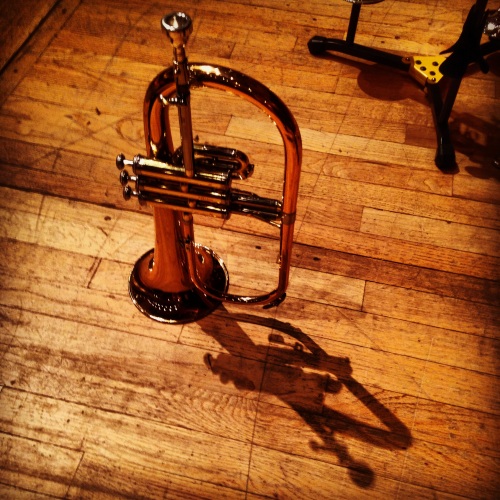Joe Alessi Master Class Quotes from 2008 ABA Convention (1 of 2)
Andrew Hitz
In an effort to clean up my office I just stumbled upon a small notebook with notes from a number of master classes. One of those classes was by trombone virtuoso and master teacher Joe Alessi, Principal Trombone of the New York Philharmonic.
This class is from March 5, 2008 at the University of Miami and was a part of the American Bandmasters Association Convention being hosted there. There are some great quotes in here for all musicians, not just trombone players or brass players. There were enough that I have broken them up into two blog posts.
Enjoy!
- "A low sound like Darth Vader when breathing means there's friction. I like low-friction breaths."
- "Auditions are all about time and when you reset your embouchure you will come in late a lot."
- "Practicing without the instrument, like singing while conducting, is very important. I sing and conduct through a piece with a new accompanist."
- "You must have a pulse to conduct and you must sing the right pitches."
- "I feel like you're reading the music, not playing the piece."
- "It's a whole different part of our brain if we're not just reading the music."
- After having the student play from memory to the back wall: "Look at the music but only refer to the music, like a big band. Bell's up, music down low."
- "Sometimes we have a good sound and we just don't use it."
- "Your back should be convex with a slight arch forward when standing."
- "If you stand healthy you will probably play healthy."
- "You can tell (in an audition) how someone will play by how they walk into a room and sound."
- "The breath is like a pitcher's wind-up. You don't have a wind-up right now."
- "Get set up earlier with the face (before an entrance.)"
- "I like to watch the belt area when people are playing to see if they are supporting."
- "You have a really nice sound but you're not always ready to use it."

